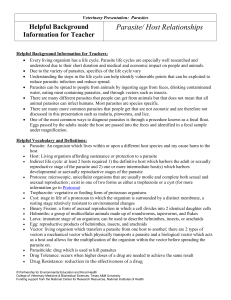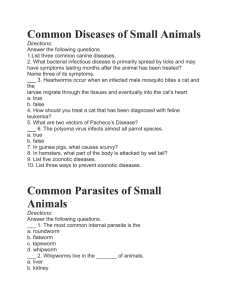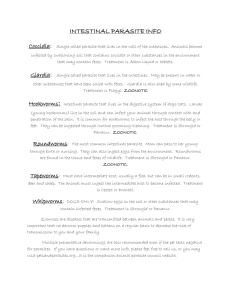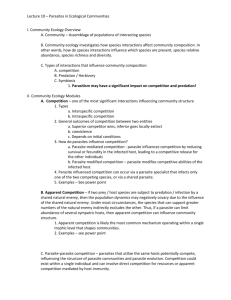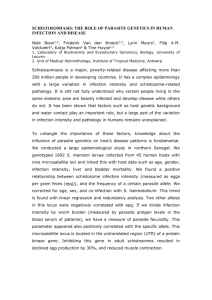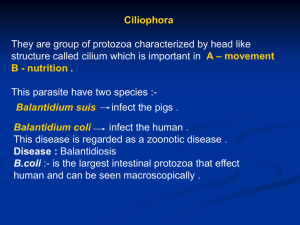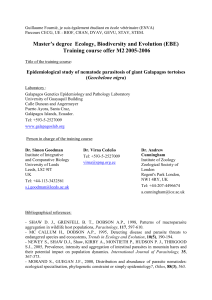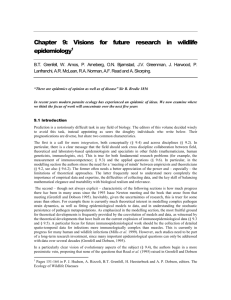parasiteecologylab
advertisement
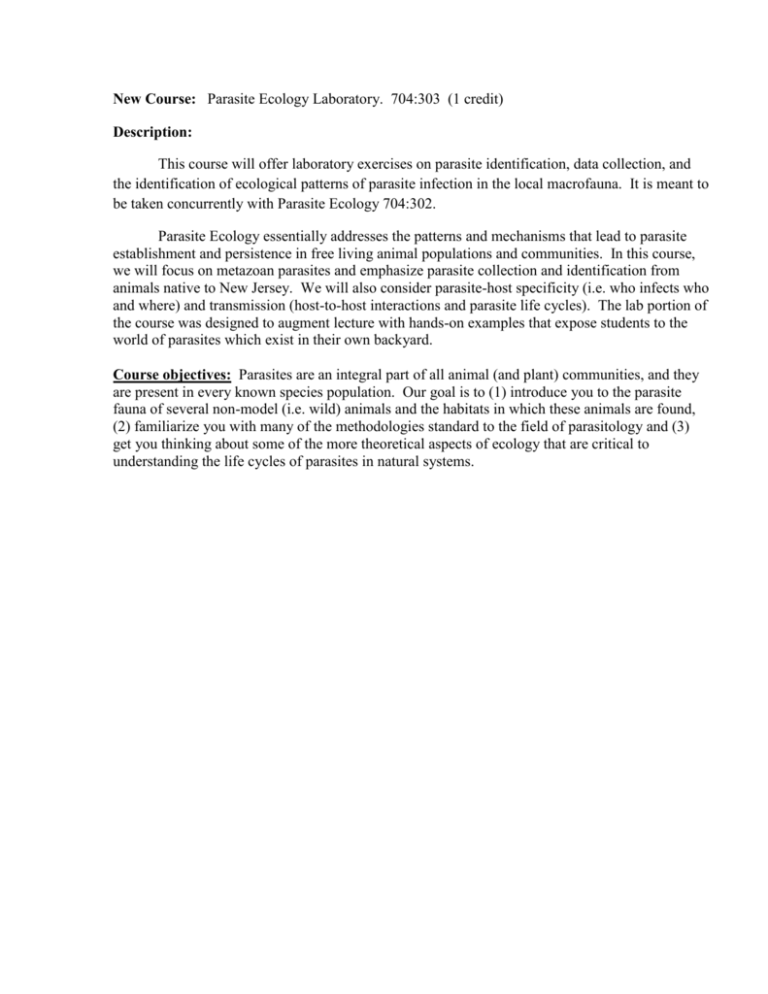
New Course: Parasite Ecology Laboratory. 704:303 (1 credit) Description: This course will offer laboratory exercises on parasite identification, data collection, and the identification of ecological patterns of parasite infection in the local macrofauna. It is meant to be taken concurrently with Parasite Ecology 704:302. Parasite Ecology essentially addresses the patterns and mechanisms that lead to parasite establishment and persistence in free living animal populations and communities. In this course, we will focus on metazoan parasites and emphasize parasite collection and identification from animals native to New Jersey. We will also consider parasite-host specificity (i.e. who infects who and where) and transmission (host-to-host interactions and parasite life cycles). The lab portion of the course was designed to augment lecture with hands-on examples that expose students to the world of parasites which exist in their own backyard. Course objectives: Parasites are an integral part of all animal (and plant) communities, and they are present in every known species population. Our goal is to (1) introduce you to the parasite fauna of several non-model (i.e. wild) animals and the habitats in which these animals are found, (2) familiarize you with many of the methodologies standard to the field of parasitology and (3) get you thinking about some of the more theoretical aspects of ecology that are critical to understanding the life cycles of parasites in natural systems. TABLE OF CONTENTS – Lab Manual Laboratory 1- Sample Survey of Raritan River Community (week 1) - Microscope Introduction/Invertebrate I.D. (week 2) page 14 Laboratory 2- Parasitological Dissection of Frog (sp.) 26 Laboratory 3- Parasitological Dissection of Fish (sp., and sp.) 32 Laboratory 4- Field Trip to Raven Lake to collect snails (Helisoma trivolvis) 38 Laboratory 5- Parasitological Dissection of marine and freshwater snails Fecal Floatation 42 Laboratory 6- Cercarial emergence Echinostome metacercarial encystment 48 Laboratory 7- Data analysis and mathematical modeling of Parasite-host systems (week 1) 56 Laboratory 8- Data analysis and mathematical modeling of Parasite-host systems (week 2) 62 Laboratory 9- What is Parasite Ecology?: a recap 69 Appendices A-G 70 LABORATORY SCHEDULE Laboratory 1- Field Trip to Raritan River (part one) Laboratory 1- Microscope Introduction/Invertebrate I.D. (part 2) Laboratory 2- Parasitological Dissection of Frog (Rana sp.) Laboratory 3- Parasitological Dissection of Fish (Lepomis sp., and Fundulus sp.) Laboratory 4- Field Trip to nearby pond Laboratory 5- Parasitological Dissection of snail (sp.) and Fecal Floatation Laboratory 6- Cercarial emergence and Echinostome metacercarial encystment Laboratory 7- Data analysis and mathematical modeling of parasite-host systems (week one) Laboratory 8- Data analysis and mathematical modeling of parasite-host systems (week 2) Laboratory 9- What is Parasite Ecology?: a recap DATE T 9-15, F 918 T 9-22, F 925 T 9-29, F 10-2 T 10-6, F 10-9 T 10-13, F 10-16 T 10-20, F 10-23 T 10-27, F 10-30 T 11-3, F 11-6 T 11-10, F 11-13 T 11-17, F 11-20 ASSIGNMENTS DUE PAGE Pre-lab1 14 In-class 1 15 Pre-lab 2 26 Pre-lab 3 32 Pre-lab 4 38 In-class 2 42 Pre-lab 5 48 In-class 3 56 none In-class discussion and Field Report 62 69

